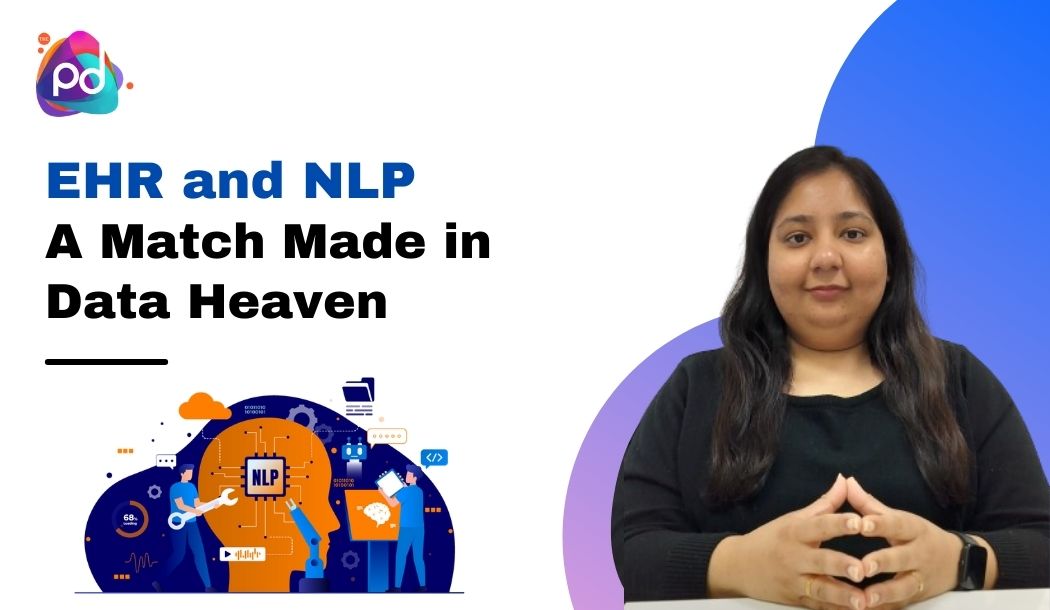
Unleashing the Power of NLP in EHR: A Comprehensive Guide
The healthcare industry is on the brink of a digital revolution, spearheaded by the integration of Natural Language Processing (NLP) into Electronic Health Records (EHR). This fusion is not just a leap forward in technology; it's a giant leap for patient care, medical research, and the overall efficiency of healthcare services. Let's delve deeper into how NLP is revolutionizing EHRs, making sense of the vast sea of data contained within them, and what this means for the future of healthcare.
EHR and NLP: A Match Made in Data Heaven 🌐
Electronic Health Records (EHR) are digital repositories of patient data, offering a comprehensive snapshot of a patient's medical history. EHRs are crucial for the modern healthcare system, providing essential data that inform patient care and medical decisions. However, the potential of EHRs extends far beyond their current use, and this is where Natural Language Processing (NLP) comes into play.
Natural Language Processing (NLP) is a technology that bridges the gap between human language and computer understanding, allowing for the extraction, analysis, and interpretation of meaningful information from large datasets. When applied to EHRs, NLP transforms unstructured data into actionable insights, unlocking a treasure trove of information that can lead to improved patient outcomes and healthcare practices.
Transforming Healthcare with NLP-EHR Integration 🚀
Advanced-Data Extraction and Analysis
One of the most significant benefits of NLP in EHRs is its ability to extract and analyze data from free-text notes—where a wealth of patient information resides. NLP algorithms can sift through clinical notes, radiology reports, and laboratory results to identify and extract crucial data points, such as symptoms, diagnoses, and treatment outcomes, that were previously buried in text.
Streamlining Clinical Documentation
Clinical documentation is a time-consuming process that can detract from patient care. NLP technologies automate the generation of clinical documents by transcribing voice notes and converting them into structured data. This not only saves time for healthcare providers but also enhances the accuracy and completeness of patient records.
Enhancing Decision Support Systems
NLP enhances clinical decision support systems (CDSS) by providing them with more comprehensive and nuanced data. By analyzing patient records, NLP can identify patterns and correlations that may not be immediately apparent, offering clinicians evidence-based recommendations, alerts for potential diagnostic errors, and personalized treatment options.
Facilitating Predictive Analytics
NLP-driven predictive analytics use historical and real-time EHR data to forecast future health events, such as disease outbreaks, patient readmissions, and the likelihood of certain conditions based on demographics and medical history. This foresight enables healthcare providers to implement preventative measures, tailor patient interventions, and allocate resources more efficiently.
Challenges in Harnessing NLP for EHR 🚧
Despite its potential, integrating NLP with EHR systems is not without its hurdles. These include:
- Data Privacy and Security: Ensuring the confidentiality and security of patient data is paramount. NLP applications must comply with healthcare regulations and standards, such as HIPAA in the United States.
- Interoperability: The diversity in EHR systems and the lack of standardization can impede the seamless integration of NLP tools.
- Accuracy and Reliability: NLP algorithms must be trained on diverse datasets to understand the nuances of medical terminology and the context in which terms are used.
The Road Ahead: NLP in the Future of EHR 🌟
The future of NLP in EHR is incredibly promising. With advancements in AI and machine learning, NLP algorithms will become even more sophisticated, offering deeper insights and more accurate predictions. We can expect:
- Personalized Medicine: Leveraging genetic information alongside EHR data to tailor treatments to the individual patient.
- Voice-Enabled EHR Systems: Allowing healthcare providers to interact with EHRs through voice commands, making data entry and retrieval more efficient.
- Global Health Insights: Aggregating and analyzing EHR data on a global scale to track disease patterns, predict epidemics, and inform public health policies.
Conclusion: A New Era for Healthcare 🌈
The integration of NLP into EHRs is more than just a technological advancement; it's a paradigm shift in how we approach healthcare. By unlocking the full potential of EHR data, NLP is setting the stage for more informed, effective, and personalized patient care. As we continue to refine these technologies, their impact on the healthcare industry will undoubtedly grow, heralding a new era of innovation and improvement in patient outcomes. The journey of integrating NLP with EHR is just beginning, and its promise for the future of healthcare is boundless.




